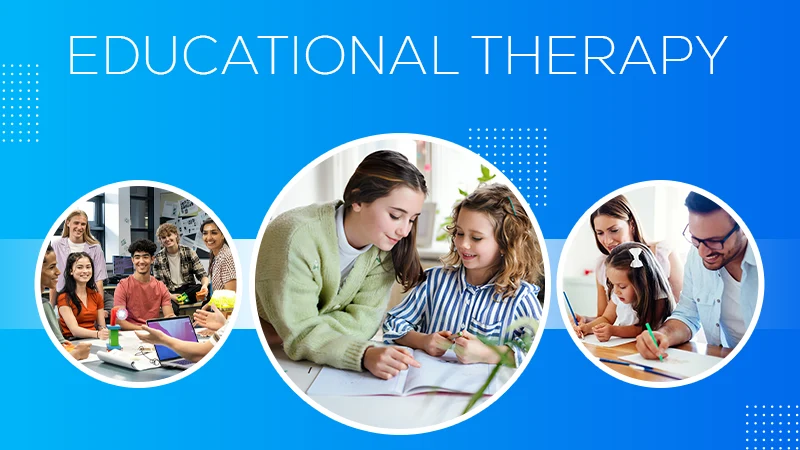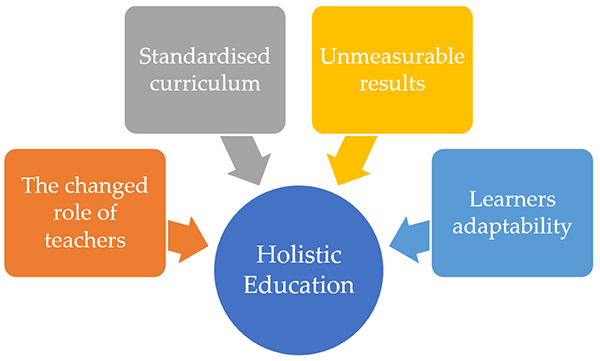
Students are constantly focusing on improving their grades and getting the best rankings in their institutions nowadays.
This is because of mainly two reasons, the first one being on the positive angle of establishing the dream career, and the second one being meeting the parent’s expectations.
The alternative factor can cause so many negative impacts on the minds of children who are already facing many problems, like peer pressure.
In these situations, Educational Therapy plays a crucial role. Many experts say that
Educational therapists create customized interventions based on each student’s specific needs and learning style, utilizing a variety of strategies to address challenges. (Wikipedia).
In this blog post, we are going to learn about this phenomenon in detail and how it will help students.
Let’s begin!
What is Educational Therapy?
Educational therapy is a type of one-on-one teaching. It helps students who have learning difficulties. It blends teaching methods and psychological techniques to help children indulge in extensive learning.
These challenges can range from issues like dyslexia to problems with attention and focus. By addressing these issues, educational therapy helps children learn in ways like:
- Serve to identify behavior issues that may be caused by underlying learning and thinking differences
- Give learners strategies to improve focus and work habits
- Introduce time management and organization skills
- Design an educational plan by giving assessments, tracking progress, and adjusting as needed
- Maintain a safe environment for your child to talk about school and learn how to advocate
- functions as a link between home and school
Educational therapists work one-on-one with students to identify their strengths and weaknesses. They create personalized plans to meet each student’s specific needs. This helps kids gain confidence and boost their school skills in a friendly setting.
Did you know?
Common areas addressed in educational therapy include reading comprehension, math skills, writing fluency, executive functioning (organization, planning), attention, and memory.
(Wikipedia)
How Educational Therapy Supports Holistic Education
In a holistic education system, the goal is to develop the child as a whole, not just academically. Educational therapy forms the best blend in this model. Here’s how:
Emotional Support
Many students who find learning hard also face emotional challenges. These include feelings like frustration and low self-esteem. Educational therapy helps them gain confidence by showing them how to approach learning in a way that suits their strengths. This emotional support is extremely significant in the child’s developmental psychology.
Individualized Approach
Each child learns uniquely. While some people could benefit from a smooth learning process, others might require more time to comprehend information. For every child, educational therapists create a customized plan. This way, they make sure that the learning experience fits each child’s unique needs. This individualized approach is a key element of holistic education.
Focus on Strengths
Educational therapy does more than fix weaknesses. It helps children see and grow their strengths. Educators help children feel more capable and motivated by highlighting their strengths. This positive reinforcement boosts their self-esteem and encourages a love for learning.
Development of Lifelong Skills
Educational therapy helps children do well in school and learn important life skills. These skills include problem-solving, time management, and self-regulation. These teachings help kids succeed in many facets of life outside the classroom.
Intriguing Insights
This infographic shows the elements of holistic education.

Benefits of Educational Therapy in Holistic Education
There are many benefits to integrating educational therapy into holistic education. Here are just a few:
Improved Academic Performance
With personalized support, students can overcome learning challenges and improve their grades. This will result in increased confidence and motivation to achieve more targets and perform better than before
Enhanced Emotional Well-Being
By addressing emotional needs, educational therapy helps children build resilience and self-confidence, which helps him/her to maintain better mental stability. Because of a good, stable mindset, a learner can observe and solve problems proactively and accomplish new goals every day.
Better Social Skills
As students become more confident in their abilities, they are more likely to interact positively with peers and teachers, due to which a student will feel more comfortable and will not hesitate to ask doubts and problems during lectures.
Long-Term Success
Skills gained from educational therapy can last a lifetime and assist them in various phases of careers or competitive examinations. They help children do well in school and life to tackle different challenges and cross numerous hurdles
The Future of Holistic Education
Incorporating educational therapy into holistic education provides a well-rounded approach to supporting children.
It helps individuals overcome obstacles in their education, improve their emotional health, and acquire practical life skills. For educators and parents who wish to create a more welcoming and encouraging environment for kids, educational therapy is crucial.
If you’re looking to support a child in their learning journey, consider exploring the benefits of educational therapy. It could be the key to unlocking their full potential.
And, If you’re also craving more juicy reads like this, take a stroll through the rest of our website today!